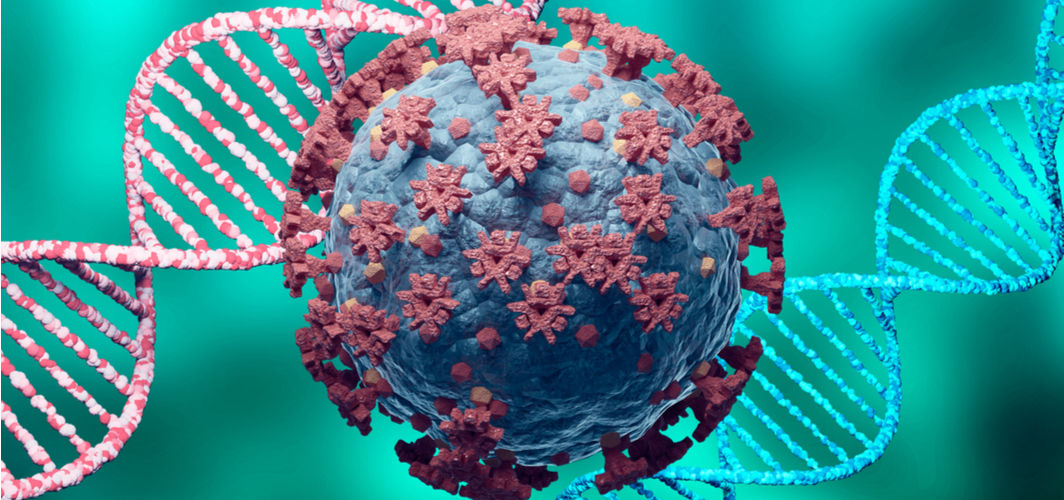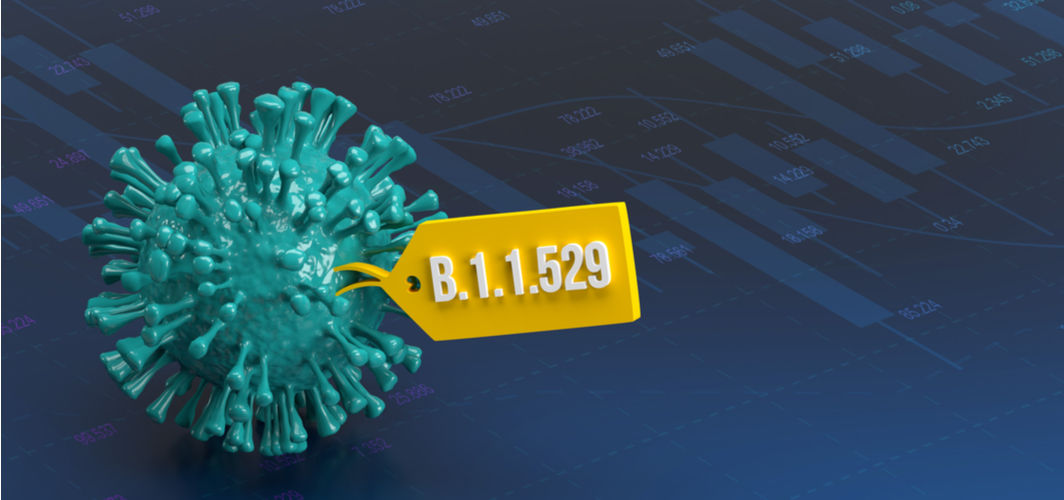Coronavirus Updates
All about the new Coronavirus variant - AY.4.2
4 min read
By Apollo 24/7, Published on - 01 November 2021, Updated on - 18 October 2022
Share this article
0
41 likes

All viruses evolve by replicating, and often undergo “copying errors” in the process. While most of these changes do not affect the property of the virus, some mutations can affect the ability of the virus to spread, cause severe disease, and react to vaccines and therapeutic medicines. So far, several variants of the COVID-19 virus such as alpha, beta, gamma, delta, epsilon, zeta, theta, kappa, etc. have been identified in different parts of the world. Out of all the variants, Delta has been the most contagious and transmissible variant of the COVID-19 virus.
Recent research published in The Lancet on 28th October 2021 also stated that even those who have received both doses of the COVID-19 vaccine are not completely safe and have a mild risk of contracting the Delta variant. However, as per the World Health Organization (WHO), COVID-19 vaccines have proved to be effective against all the variants in preventing severe disease and death. Scientists have tracked more than 20 sub-lineages (subtypes) of the Delta variant, with AY.4.2 being the most recently discovered one.
Let’s address some of the commonly asked questions about this new COVID-19 variant.
1. What is the AY.4.2 variant?
In October 2020, the Delta variant of SARS-CoV-2 (the virus that causes COVID-19 disease) was discovered in India. The Delta variant was found to be more infectious and could spread faster than other forms of SARS-CoV-2. However, a few months later, the Delta variant exhibited a mutation, which was named AY.1 or Delta Plus and was found to be more threatening than Delta.
In October 2021, WHO announced the spread of a new subvariant of the COVID-Delta strain, AY.4.2, in different parts of the world. As of 25th October 2021, 42 countries including the UK, US, Denmark, Poland, Germany, and India have reported cases of the AY.4.2. The UK health security agency (HSA) labelled AY.4.2 as a “variant under investigation” to determine its virulence and rate of infectivity after the WHO found a gradual increase in the proportion of AY.4.2 COVID-cases in Britain. It is believed to be up to 15% more infectious than the other variants of the COVID-19 virus.
2. Where was the AY.4.2 variant found first?
The sub-variant of Delta was first found in the UK in June 2021. The WHO stated that around 93% of the world's AY.4.2 cases are found in the UK. It is also believed that due to travel restrictions, there hasn’t been mass spreading of this variant across the world.
3. What are the symptoms of the AY.4.2 variant?
So far, doctors have not found any change in the symptoms of patients infected by the AY.4.2 variant of COVID-19. Though not enough research has been carried out on this variant, scientists believe that since the Delta variant was 40% to 60% more infectious than the other variants, the symptoms of AY.4.2 can also be more infectious and spread at a rapid rate.
4. Is the AY.4.2 variant more contagious than the Delta variant of the COVID-19 virus?
Experts believe that AY.4.2 could be around 10% more infectious than the Delta variant. The UK scientists researched to determine the secondary attack rate (SAR) of AY.4.2, which is the ability of the virus to spread the infection among susceptible people within a specific group, for instance, in a household or among close contacts.
The SAR of AY.4.2 was found to be 12.4%, while for the Delta variant, it was 11.1%. This means the new subvariant has a higher ability to spread infection in the same household. However, the SAR for both the AY.4.2 and the Delta variant was the same in non-household settings such as public places. More research is needed to confirm the rate of spreading of the new subvariant.
5. Can AY.4.2 result in severe disease and death?
There is limited evidence to indicate that the AY.4.2 subvariant leads to more severe illness or death. However, scientists believe that unvaccinated people are at the highest risk of getting severely affected by this new subvariant.
6. How can one protect themselves from the new Delta subvariant?
Since there is minimal research on AY.4.2, it is necessary to follow COVID-appropriate behaviours to stay protected which include:
- Not stepping out of the house unnecessarily and avoiding crowded spaces.
- Keeping the house well-ventilated by opening the windows, using air conditioners or exhaust fans.
- Wearing masks or protective shields in public places.
- Washing hands frequently with soap and water or using an alcohol-based hand rub.
- Getting vaccinated against the COVID-19 virus.
Conclusion
Mutation of the Delta variant of the COVID-19 virus has been a matter of concern for scientists as the sub-variants are comparatively more contagious and easily transmissible than the original Delta variant. Moreover, the Delta variant and sub-variants have been spreading faster and causing severe disease in unvaccinated or partially-vaccinated populations. Further research is needed to determine the effect of the vaccine-generated and past-infection-generated neutralising antibodies on the AY.4.2 variant of the COVID-19 virus. In the meantime, everyone must follow the COVID-19 safety norms to keep themselves protected.
If you have any questions on the Coronavirus, you can speak to our experts through an online doctor consultation.
You can also explore a range of products to keep you safe from the Coronavirus.
Coronavirus Updates
Leave Comment
Recommended for you

Coronavirus Updates
What Are the Precautions for Online Shopping During COVID-19?
It is safe to receive online deliveries provided you follow some precautions such as frequent hand washing, physical distancing, and other tips mentioned in this article.

Coronavirus Updates
Omicron: A New COVID-19 Variant of Concern
Omicron is a variant of the SARS-CoV-2 virus first detected in South Africa. With 32 mutations in its spike protein, the Omicron has demonstrated increased transmissibility.

Coronavirus Updates
Travelling After Lockdown? Carry These Travel Essentials With You
Carry the travel essentials mentioned in this article while following the necessary precautions to prevent Coronavirus infection.
Subscribe
Sign up for our free Health Library Daily Newsletter
Get doctor-approved health tips, news, and more.
Visual Stories

COVID-19 Home Care: Guidelines for Patients and Caregivers
Tap to continue exploring
Recommended for you

Coronavirus Updates
What Are the Precautions for Online Shopping During COVID-19?
It is safe to receive online deliveries provided you follow some precautions such as frequent hand washing, physical distancing, and other tips mentioned in this article.

Coronavirus Updates
Omicron: A New COVID-19 Variant of Concern
Omicron is a variant of the SARS-CoV-2 virus first detected in South Africa. With 32 mutations in its spike protein, the Omicron has demonstrated increased transmissibility.

Coronavirus Updates
Travelling After Lockdown? Carry These Travel Essentials With You
Carry the travel essentials mentioned in this article while following the necessary precautions to prevent Coronavirus infection.